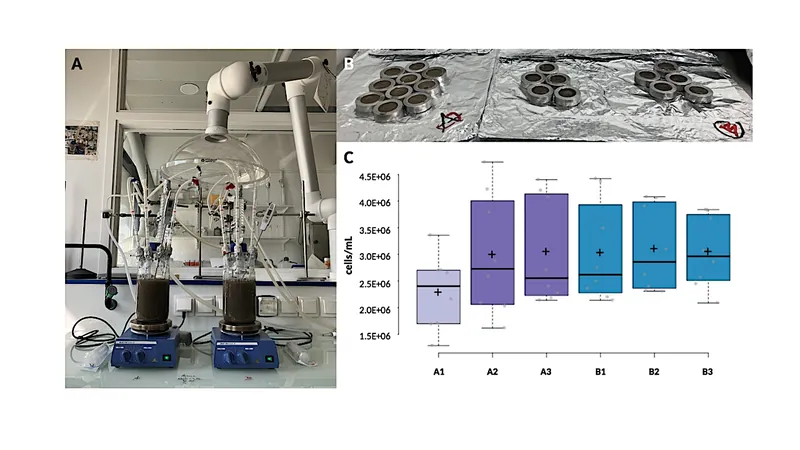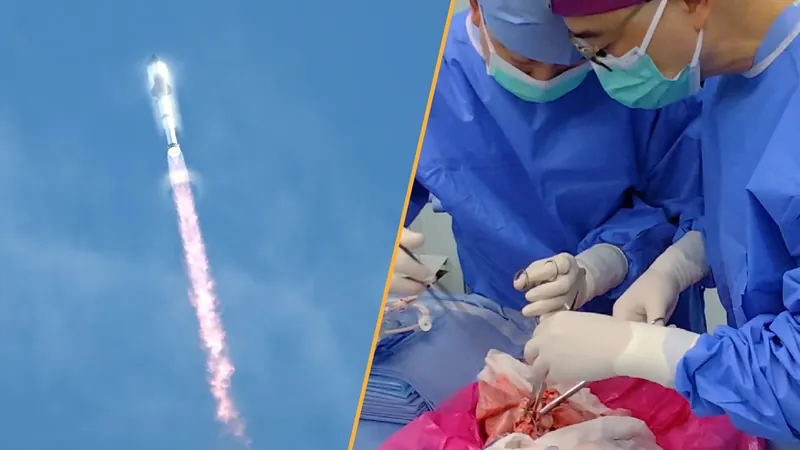
Unveiling the Secrets of Life: How Extremophiles Could Transform Our Search for Alien Biomarkers on Mars
2025-07-21
Author: Sarah
The Quest for Alien Life Indicators
As we venture deeper into the cosmos, the search for life beyond Earth continues to ignite our imagination. In particular, scientists are on the lookout for reliable biomarkers in harsh planetary environments, such as Mars. These biomarkers must withstand the test of geological time while retaining vital clues about their possible biological origins.
Thiophene-Bearing Quinones: The Key Players
Enter thiophene-bearing quinones. These fascinating molecules not only meet the stability criteria but also have been spotted on Martian terrain. Yet, the mystery deepens—while these substances can form through non-biological processes, they've also been identified in various meteorites. Could Mars be home to signs of life, or are we merely witnessing the handiwork of chemistry?
The Experiment: Cultivating Extremophiles in Martian Simulations
To unravel this enigma, researchers turned to the extremophilic archaeon Acidianus manzaensis. This microbe thrives under conditions too extreme for most life forms, making it an ideal candidate to study in Mars analog environments like ESA01-E. The team placed these hardy organisms under a month of desiccation and simulated Mars-like conditions within a controlled chamber.
Uncovering Resilience: The Findings
After the rigorous tests, the results were promising. Acidianus manzaensis not only survived, but they also demonstrated their remarkable ability to recover post-exposure. Analyzing the composition of their thiophene-bearing quinones revealed a complex assortment of oxidation states, suggesting these microbes have adapted to withstand severe environmental challenges.
Future Implications in Astrobiology
While further investigation into the headgroup moieties is needed to distinguish between biologically and abiologically produced thiophenes, this groundbreaking study sheds light on the resilience of life forms in extreme circumstances. The work not only advances our understanding of Acidianus manzaensis but also opens the door for future research into life on other planets.
As we set our sights on Mars, the discoveries surrounding extreme microorganisms may well guide our search for extraterrestrial life, bringing us closer to understanding whether we are alone in the universe.


 Brasil (PT)
Brasil (PT)
 Canada (EN)
Canada (EN)
 Chile (ES)
Chile (ES)
 Česko (CS)
Česko (CS)
 대한민국 (KO)
대한민국 (KO)
 España (ES)
España (ES)
 France (FR)
France (FR)
 Hong Kong (EN)
Hong Kong (EN)
 Italia (IT)
Italia (IT)
 日本 (JA)
日本 (JA)
 Magyarország (HU)
Magyarország (HU)
 Norge (NO)
Norge (NO)
 Polska (PL)
Polska (PL)
 Schweiz (DE)
Schweiz (DE)
 Singapore (EN)
Singapore (EN)
 Sverige (SV)
Sverige (SV)
 Suomi (FI)
Suomi (FI)
 Türkiye (TR)
Türkiye (TR)
 الإمارات العربية المتحدة (AR)
الإمارات العربية المتحدة (AR)